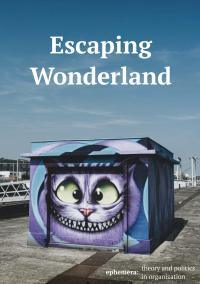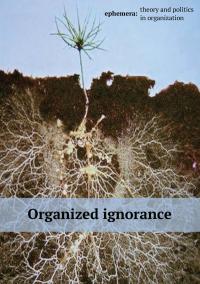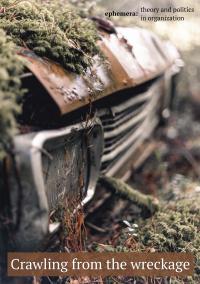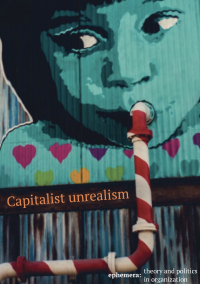Managing the human? Towards diverse, engaged and critical HRM studies
| Attachment | Size |
|---|---|
| CfPManagingTheHuman.pdf | 138.71 KB |
Keywords
Issue Editors: Frans Bévort, Per Darmer, Mette Mogensen and Sara Louise Muhr
Today considerations about the management of so-called ‘human resources’ is taken up almost routinely both in governmental programs, in organizations as well as in the private lives of citizens (Jackson et al., 2014; Lengnick-Hall et al., 2009). This, in tandem with the increasing power of HRM practices in contemporary corporations, signals how HRM has succeeded to construct itself as a ‘serious’ and ‘established’ field of research.
The field of HRM has for a long time been criticized by a lively tradition of work, which has engaged with the development of management in late capitalism and through this criticised HRM for its one-sided and restricted way of engaging with the human as a manageable ‘resource’. One stream of research often drawing upon Marxist theory and/or labour process theory (e.g. Braverman, 1973; Burawoy, 1979; Legge, 2005; Storey, 1995) and one based on a more Foucauldian perspective, criticizing HRM and related ideology and practices (e.g. Sewell and Wilkinson, 1992; Townley, 1993; 1994; Grey, 1994; Barratt, 2002). Grounded in the argument that HRM is an ideological force, contemporary studies have continued the critique of the organization and management of the human workforce/resource (Weiskopf and Munro, 2012; Fleming and Sturdy, 2011; Watson, 2004; Janssens and Steyaert, 2009; Delbridge and Keenoy, 2010). Such perspectives reach into discussions of, for example, humanism, post-humanism, human capital, affective labour, and the sociology of work (see also Beverungen et al., 2013; Dowling et al., 2007; Figiel et al., 2014; Chertkovskaya et al., 2013; Murtola and Fleming, 2011).
In this way, the history of HRM has been characterized by disciplinary disputes, methodological disagreements and most of all ideological differences, which seem to uphold the boundaries between two separate conversations (e.g. Watson, 2007). This has led to one part of the literature operating on a practical/strategic level and the other part of the literature engaged with ideology critique. The former is easily picked up by practitioners, resulting in its dominance in business schools and HRM teaching. The latter, meanwhile, is engaged in a critique that leaves little room for action and thus falls short of converting theoretical critique into practical implications. A way to bring the field further, we argue, is to develop a constructive and engaged critique of HRM – one that can both theorize the human in HRM and take practice into account – possibly as a form of critical performativity (Spicer et al., 2009).
We invite papers that strive to connect different theoretical and methodological resources to current HRM practices and research. Promoting pluralism, diversity and empirical sensitivity in critical engagements with HRM, we expect not only new insights to the present theorizing of HRM, but also papers that may suggest alternative practices, roles and identities to its various organizational actors (Hallet, 2010). At the core of HRM is the concept of ‘the human’ and how ‘the human’ can be used as a resource to gain for example political, economic or commercial gains. This special issue seeks to reflect upon how humans are seen as an organizational ‘resource’ in the first place and how various ways of ‘organizing the human’ influence the way HRM is theorized and practiced.
Furthering a (new) tradition of critical and engaged HRM scholarship may include, but is not limited to the following topics:
- The role of critique in contemporary HRM
- The various ways in which the different approaches to HRM have conceptualized the human
- The modes and practices of organizing the human
- Ethics of managing the human
- Critical approaches to methodology in HRM studies
- Critical uses of quantitative analysis in HRM studies
- HRM as engaged scholarship
- Studies of the negotiated and practical effects of HRM
- Analyses of the increasing professionalization of HRM practitioners and its effects to practice and theory of HRM
- Analysing the various actors involved in HRM: Who/what are the neglected actors/agents of HRM?
Deadline for submissions: April 1st, 2016
All contributions should be submitted to Frans Bévort (fb.ioa AT cbs.dk). Please note that three categories of contributions are invited for the special issue: articles, notes, and reviews. Information about these different types of contributions can be found at: http://www.ephemerajournal.org/how-submit. Contributions will undergo a double blind review process. All submissions should follow ephemera’s submissions guidelines, available at: http://www.ephemerajournal.org/how-submit. For further information, please email Frans Bévort (fb.ioa AT cbs.dk).
References
Barratt, E. (2002) ‘Foucault, foucauldianism and human resource management’, Personnel Review, 31(2): 189-204.
Beverungen, A., B. Otto, S. Spoelstra and K. Kenny (2013) ‘Free work’, ephemera, 13(1): 1-9.
Braverman, H. (1974) Labor and monopoly capital. The degradation of work in the twentieth century. New York: Monthly Review Press.
Burawoy, M. (1979) Manufacturing consent: Changes in the labor process under monopoly capitalism. Chicago: The University of Chicago Press.
Chertkovskaya, E., P. Watt, S. Tramer and S. Spoelstra (2013) ‘Giving notice to employability’, ephemera, 13(4): 701-716.
Delbridge, R. and T. Keenoy (2010) ‘Beyond managerialism?’, The International Journal of Human Resource Management, 21(6): 799-817.
Dowling, E., R. Nunes and B. Trott (2007) ‘Immaterial and affective labour: Explored’, ephemera, 7(1): 1-7.
Figiel, J., S. Shukaitis and A. Walker (2014) ‘The politics of workers’ inquiry’, ephemera, 14(3): 307-314.
Fleming, P. and A. Sturdy (2011) ‘‘Being yourself’ in the electronic sweatshop: New forms of normative control’, Human Relations, 64(2): 177-200.
Grey, C. (1994) ‘Career as a project of the self and labour process discipline’, Sociology, 28(2): 479-497.
Hallett, T. (2010) ‘The myth incarnate: Recoupling processes, turmoil, and inhabited institutions in an urban elementary school’, American Sociological Review, 75(1): 52-74.
Jackson, S.E., R.S. Schuler and K. Jiang (2014) ‘An aspirational framework for strategic human resource management’, The Academy of Management Annals, 8(1): 1-56.
Janssens, M. and C. Steyaert (2009) ‘HRM and performance: A plea for reflexivity in HRM studies’, Journal of Management Studies, 46(1): 143-155.
Legge, K. (2005) Human resources, realities and rethorics. London: Palgrave.
Lengnick-Hall, M.L., C.A. Lengnick-Hall, L.S. Andrade and B. Drake (2009) ‘Strategic human resource management: The evolution of the field’, Human Resource Management Review, 19(2): 64-85.
Murtola, A.M. and P. Fleming (2011) ‘The business of truth: Authenticity, capitalism and the crisis of everyday life’, ephemera, 11(1): 1-5.
Sewell, G. and B. Wilkinson (1992) ‘Empowerment or emasculation? Shopfloor surveillance in a total quality organization’, in P. Blyton and P. Turnbull (eds.) Reassessing human resource management. London: Sage.
Spicer, A., M. Alvesson and D. Kärreman (2009) ‘Critical performativity: The unfinished business of critical management studies’, Human Relations, 62(4): 537-560.
Storey, J. (1995) ‘Human resource management: Still marching on, or marching out?’, in J. Storey (eds.) Human Resource Management: A Critical Text. London: Thomson.
Townley, B. (1993) ‘Foucault, power/knowledge, and its relevance for human resource management’, Academy of Management Review, 18(3): 518-545.
Townley, B. (1994) Reframing human resource management: Power, ethics and the subject at work. London: Sage.
Watson, T.J. (2004) ‘HRM and Critical Social Science Analysis’, Journal of Management Studies, 41(3): 447-467.
Watson, T.J. (2007) ‘Organization theory and HRM’, in P. Boxall, J. Purcell and P. Wright (eds.) The Oxford handbook of Human Resource Management. Oxford: Oxford University Press.
Weiskopf, R. And I. Munro (2012) ‘Management of human capital: Discipline, security and controlled circulation in HRM’, Organization, 19(6): 685-702.




